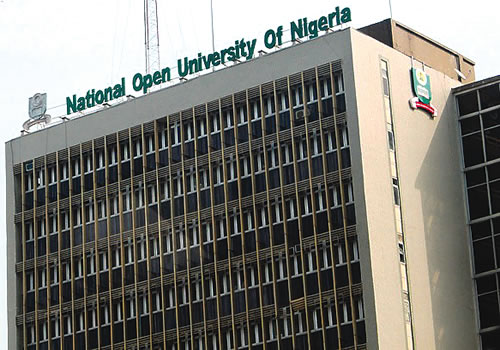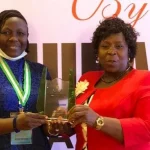ARISING from the negative impact of COVID-19 pandemic, the National Open University of Nigeria (NOUN), Africa Centre of Excellence For Development Impact (ACE-IMPACT) and the National Universities Commission (NUC) are working in synergy on how to explore digital learning in tertiary education.
Accordingly, the African Centre of Excellence on Technology Enhanced Learning (ACETEL), Nigeria, located in NOUN, Abuja, hosted a four-day training workshop, fourth in the series, of experts in digital education, where experts were in agreement that higher education in Nigeria and indeed African countries must embrace technology to be able to deliver sustained quality and enhanced access to education.
When the COVID-19 pandemic struck in 2020, both the basic and tertiary institutions were shut for nearly a year in Nigeria due to lack of the capacity to utilise digital education as an alternative to face-to-face learning.
Speaking at the event, the vice chancellor of NOUN, Professor Olufemi Peters, said he was glad that through the NUC, many universities in Nigeria are beginning to know about the experts housed in NOUN.
“We are beginning to receive very many requests from other universities to either show them how we developed these courses to be delivered online or indeed help them develop what we refer to as the learning management system,” he added.
He noted that the open university had recorded many milestones on its online platform, adding that the training was an additional expertise and acquisition of skills to further improve on what the university is doing.
IN CASE YOU MISSED THESE FROM NIGERIAN TRIBUNE
- Revealed! Details Of South-West APC Leaders Meeting With Presidential Aspirants
- Supreme Court Has Cleared Civil Servants To Participate In Politics, Falana Tells FG
- Battle For New Alaafin Begins As Ruling Houses Insist On Producing Next Oba
- Court Admits More Evidence Against Alleged Fake Army General, Bolarinwa
- I’m Every Man’s Choice Now, My DM Is Crazy —Eniola Badmus
- It Is Now Bye To Decency: Crazy Fashion Trends At Owambe Parties
The vice chancellor explained that the workshop was designed to improve on certain attributes of digitisation in the way education is being delivered to the students. He added that it was a train-the-trainer exercise, where those who participated in the workshop would go back to their various universities in the three African countries to extend what they had learnt to them.
Professor Peters said that the university, through its Regional Training and Research Institute for Distance and Open Learning (RETRIDOL), had been able to impart knowledge to at least 20 universities in the form of training and about 15 universities in the West African sub-region.
On her part, the project manager, ACE, Sylvia Mkandawire, said that the ACE project being funded by Word Bank and hosted by the Association of African Universities in Ghana, had been helping Africa to advance the quality of higher education by providing various components, state-of-art facilities and helping the universities to implement innovative approaches.
She said, “The objective of this particular training we are having is to train the group of teachers or lecturers that will have competencies or skills to be able to deliver a digital education system in a manner that many other students can also be reached.
“As you can see, COVID came and it affected education. During that period, the education system was really shaken. It interrupted it for over a year. However, we are in the third year. Our plan is to adequately respond to this new reality in higher education by providing at least innovative teaching approaches where teachers can use digital education to continue with teaching and ultimately we are building the resilience of teaching institutions in Africa.
“So far, we have trained over 200 people from different countries. So, the project is managed in a way that we have francophone countries participating – Benin and Burkina Faso and then the anglophone countries – we have Nigeria and Ghana.
“So, for the four participating countries, we have trained over 200 technical staff and each institution is contributing at least 30 people for the training.”
The coordinator of ACETEL, Mr Joshua Atah, who represented the NUC, said that “the experience of COVID-19 left us with the fact that we could not run away from technology, given that the way we do things in education has changed and that change had come to stay.”
“In addition, even before now, we started having issues with very large classes as the population keeps growing; the number of people who need to access education is increasing by the day, so the problem of access can actually be addressed with technology.
“Technology has come to bridge that gap, so we must continue to engage in new tools, technology and new methods of enhancing access to education,” he said.






